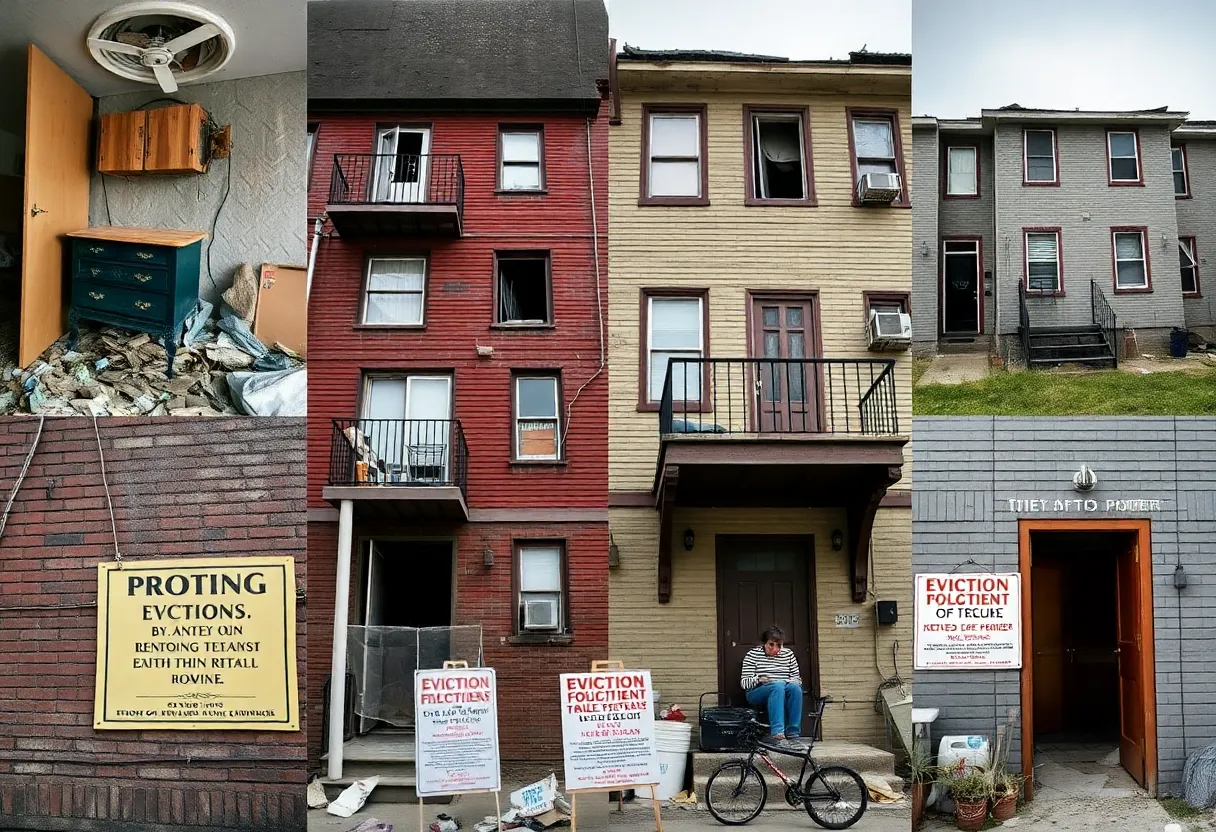News Summary
In a bold venture to revitalize Detroit’s real estate market, RealT’s attempt to use cryptocurrency and fractional ownership has backfired. Tenants report poor living conditions and unpaid dues, with over 300 properties facing foreclosure. The company’s mismanagement has resulted in broken promises and a significant community impact, raising questions about the viability of their investment model. As issues pile up, the future of this innovative approach to real estate construction looks bleak.
Renovation Blues: Detroit’s Cryptocurrency Real Estate Gamble Backfires
In the world of real estate, the buzz around Detroit has been electric, fueled by innovative ideas and bold investors. One company, RealT, based in sunny Florida, has attempted to shake things up through its embrace of cryptocurrency and an intriguing business model known as fractional ownership. But as it turns out, the dream of owning a piece of Detroit through a digital token is facing a nightmare scenario.
The Numbers Don’t Lie
RealT claims to manage around 1,000 rental properties in Detroit. Sounds impressive, right? However, for many tenants living in these properties, the reality couldn’t be more different. Reports are flooding in about unreliable maintenance, worsening living conditions, and a battle with eviction threats as rental agreements often seem nonexistent.
Imagine living with a broken shower or dealing with persistent black mold, only to find that your calls for help go unanswered. This has been the unfortunate reality for many tenants who desperately file work orders but see little to no action from RealT. With hundreds of the company’s properties facing possible tax foreclosure and an alarming rise in unresolved issues, a cloud of uncertainty has taken over the once-vibrant neighborhoods.
The Tenant Experience: A Rollercoaster of Uncertainty
What’s even more troubling is the chaotic environment described by tenants who often don’t know who to pay their rent to. Such confusion is compounded by the feeling of instability, intensified when eviction notices are issued seemingly overnight. The fear of losing your home can create sleepless nights for anyone, but it appears to be the harsh reality that many are contending with in properties managed—or mismanaged—by RealT.
Unpaid Dues: A Stack of Problems
As the situation progresses, the financial troubles tied to RealT are bubbling to the surface. With over $2 million in unpaid taxes and numerous blight tickets accumulating over the years, more than 300 properties are teetering on the edge of foreclosure. The looming deadline for payments is adding pressure on the company, which is already in deep waters concerning property management.
Something’s Not Right After All
Amidst the turmoil, co-founders Jean-Marc and Remy Jacobson pointed fingers at former property managers, claiming they mismanaged funds meant for maintenance and taxes. Although the co-founders vow to reinvest in the Detroit portfolio and improve tenant experiences, a lingering cloud of doubt hangs over their aspirations, particularly regarding the feasibility of their modeled approach.
The Why and the How of the Mess
One might wonder how all this chaotic unfolded. The ‘tokenization’ of real estate aimed to make investing effortless—but it’s proving to be anything but. While dividing properties into countless tokens for fractional ownership sounds revolutionary, the question remains: where will the funds for necessary repairs come from? When management channels and responsibilities behind these properties remain opaque, tenants continue to feel the brunt of uncertainty.
Community Impact and Future Looks Gloomy
What began as an exciting venture into Detroit real estate has unfortunately resulted in distress for local residents. RealT entered Detroit with promises of fresh opportunities, aiming to revitalize the community through low housing costs and innovation. Yet the promises appear unfulfilled as the management of properties goes unattended and community morale diminishes.
In a microcosm of the greater housing crisis, the ripple effect of this seemingly reckless approach underscores the importance of communication, accountability, and putting tenants’ rights front and center—all crucial elements that seem to have been overlooked. With the community and tenants left to navigate this mess alone, the lessons learned from RealT’s predicament may serve as a cautionary tale for the future of real estate.
Deeper Dive: News & Info About This Topic
HERE Resources
Detroit’s Renovation Surge: Transforming Homes and Futures
Innovative Real Estate Advertising Strategies for 2025
Renovation of Abandoned Church into Family Home
Architectural Gem for Sale: A Mid-Century Modern Masterpiece








